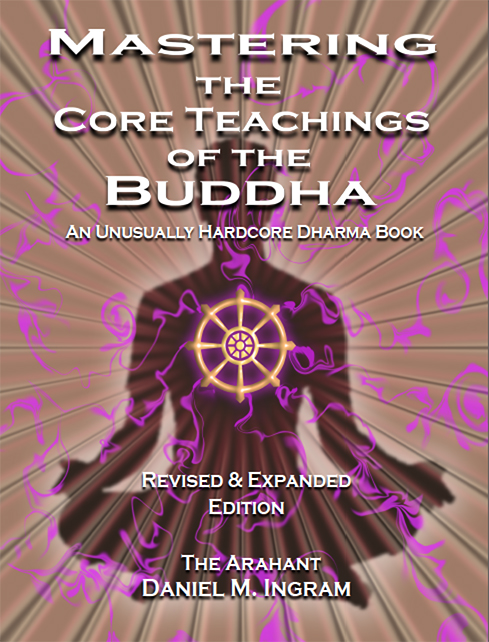The Paradox of Effort and Surrender in Buddhist Meditation
The Paradox of Effort and Surrender in Buddhist Meditation
The concept of effort and surrender is a paradoxical one in Buddhist meditation. On one hand, Buddhist teachings emphasize the importance of diligent effort and practice in achieving spiritual growth. On the other hand, the concept of surrender and letting go is also central to the Buddhist path, as it allows practitioners to release attachment and ego. So, how do we balance these two seemingly opposing forces? How can we strive for enlightenment while also letting go of our attachment to specific outcomes?
The role of effort in Buddhist meditation is multifaceted. Effort is necessary for developing concentration, wisdom, and mindfulness. It's what allows us to sit through long periods of meditation, to focus on our breath, and to cultivate a sense of awareness. As the Buddha himself said, "The mind is everything; what you think, you become." This quote highlights the importance of effort in shaping our minds and achieving our goals. However, effort can also be a double-edged sword. When we strive too hard, we can become frustrated, anxious, and burned out. We can start to see meditation as a chore, rather than a joyful practice.
The Limitations of Effort
So, what are the limitations of effort in Buddhist meditation? When we rely too heavily on effort, we can start to reinforce our ego and sense of self. We can become attached to our achievements and our progress, rather than letting go of our attachment to specific outcomes. This can lead to a sense of pride and arrogance, which can be a major obstacle on the path to enlightenment. As the Buddhist teacher, Ajahn Chah, said, "The ego is like a shadow, it follows you everywhere, but it's not really you." This quote highlights the importance of letting go of our ego and sense of self, rather than reinforcing it through our efforts.
The limitations of effort can also be seen in the way we approach meditation. When we strive too hard, we can start to see meditation as a means to an end, rather than an end in itself. We can become so focused on achieving a specific state or outcome that we forget to enjoy the journey. We can start to see meditation as a way to achieve enlightenment, rather than a way to cultivate mindfulness and awareness in the present moment. As the Buddhist teacher, Thich Nhat Hanh, said, "The present moment is the only moment available to us, and it is the door to all moments." This quote highlights the importance of being present in the moment, rather than striving for a specific outcome.

The Concept of Surrender in Buddhism
So, what is the concept of surrender in Buddhism? Surrender is the act of letting go of our attachment to specific outcomes and our sense of self. It's the act of releasing our ego and our need for control, and instead, allowing things to unfold naturally. Surrender is not the same as giving up or being passive. Rather, it's an active process of letting go of our resistance and our attachment to specific outcomes. As the Buddhist teacher, Pema Chodron, said, "Surrender is not about giving up, it's about giving in to the present moment." This quote highlights the importance of surrendering to the present moment, rather than resisting it.
The concept of surrender is closely related to the concept of mindfulness. Mindfulness is the practice of being present in the moment, without judgment or attachment. It's the practice of observing our thoughts and emotions, without becoming identified with them. When we practice mindfulness, we can start to see things as they really are, rather than through the lens of our ego and our attachment to specific outcomes. For example, when we're meditating, we can start to notice our thoughts and emotions arising and passing away, without becoming attached to them. We can start to see that our thoughts and emotions are not permanent, and that they're not a reflection of our true nature.
Balancing Effort and Surrender
So, how can we balance effort and surrender in Buddhist meditation? One way is to approach meditation with a sense of curiosity and openness, rather than a sense of striving and achievement. We can start to see meditation as a journey, rather than a destination, and allow ourselves to be present in the moment, without judgment or attachment. We can also start to cultivate a sense of mindfulness and awareness, by observing our thoughts and emotions, without becoming identified with them. Here are some ways to balance effort and surrender:
- Start with a clear intention, but be open to changing your approach as needed
- Focus on the process, rather than the outcome
- Practice mindfulness and awareness, by observing your thoughts and emotions without judgment
- Let go of your attachment to specific outcomes, and allow things to unfold naturally
- Cultivate a sense of curiosity and openness, rather than a sense of striving and achievement
By balancing effort and surrender, we can start to cultivate a sense of mindfulness and awareness that's not dependent on our ego or our attachment to specific outcomes. We can start to see things as they really are, rather than through the lens of our ego and our attachment to specific outcomes. We can start to experience a sense of freedom and liberation, that's not dependent on our achievements or our progress. As the Buddha himself said, "The ultimate truth is not something that can be achieved, it's something that can be realized." This quote highlights the importance of realizing the ultimate truth, rather than achieving it through our efforts.
The Interplay Between Effort and Surrender
The interplay between effort and surrender is a complex and dynamic one. On one hand, effort is necessary for developing concentration, wisdom, and mindfulness. On the other hand, surrender is necessary for releasing our attachment to specific outcomes and our sense of self. When we balance effort and surrender, we can start to cultivate a sense of mindfulness and awareness that's not dependent on our ego or our attachment to specific outcomes. We can start to see things as they really are, rather than through the lens of our ego and our attachment to specific outcomes.
The interplay between effort and surrender can also be seen in the way we approach meditation. When we strive too hard, we can start to reinforce our ego and sense of self. However, when we surrender too much, we can start to become passive and complacent. The key is to find a balance between effort and surrender, and to approach meditation with a sense of curiosity and openness. As the Buddhist teacher, Jack Kornfield, said, "The key to meditation is not to try to achieve a specific state, but to cultivate a sense of awareness and curiosity." This quote highlights the importance of cultivating a sense of awareness and curiosity, rather than trying to achieve a specific state.
Finding Mindfulness in Unexpected Places
As we explore the paradox of effort and surrender in Buddhist meditation, we may find that the principles of mindfulness and awareness can be applied to various aspects of our lives. Interestingly, the concept of surrender can also be observed in the way people approach games of chance, where a delicate balance between strategy and luck is required. In these situations, players must learn to let go of their attachment to specific outcomes and trust in the unpredictability of the game, much like the way we surrender to the present moment in meditation. By playing Tiger's Luck Hold&Win slot online (Betsoft) we can experience the thrill of uncertainty and develop a greater sense of detachment, which can ultimately translate to other areas of our lives, allowing us to cultivate a deeper sense of awareness and understanding. This unexpected connection can help us appreciate the value of mindfulness in all aspects of our lives, from meditation to entertainment.
Conclusion
In conclusion, the paradox of effort and surrender in Buddhist meditation is a complex and dynamic one. By balancing effort and surrender, we can start to cultivate a sense of mindfulness and awareness that's not dependent on our ego or our attachment to specific outcomes. We can start to see things as they really are, rather than through the lens of our ego and our attachment to specific outcomes. We can start to experience a sense of freedom and liberation, that's not dependent on our achievements or our progress. As we continue on our journey, let's remember to approach meditation with a sense of curiosity and openness, and to balance effort and surrender in a way that allows us to cultivate a deeper sense of awareness and understanding. The Paradox of Effort and Surrender in Buddhist Meditation is a journey, not a destination, and it's one that requires patience, curiosity, and a willingness to let go of our attachment to specific outcomes.

